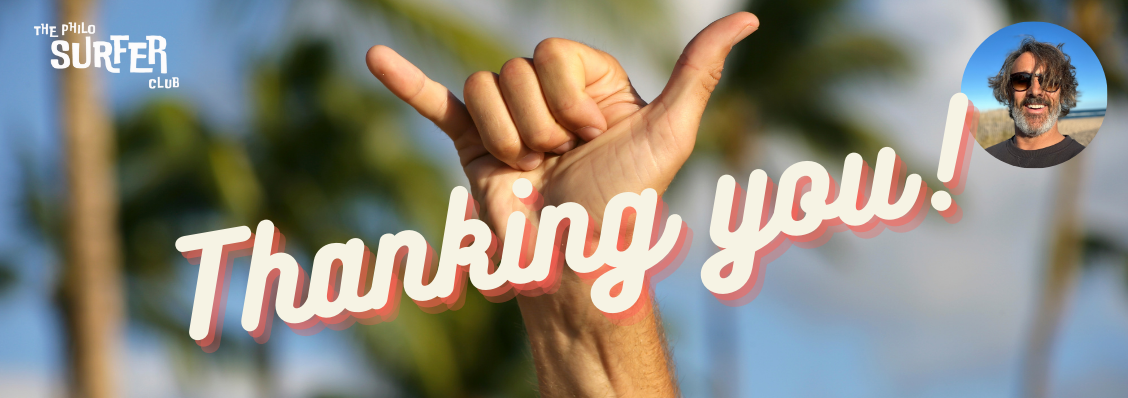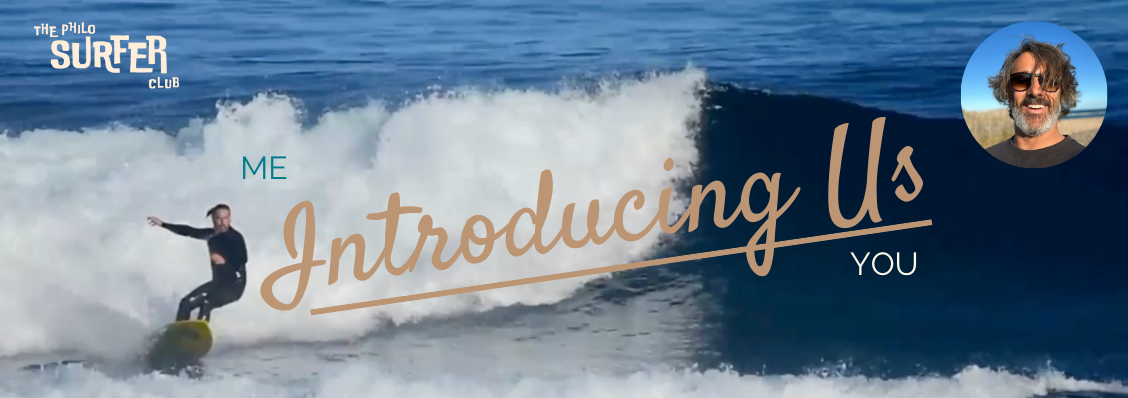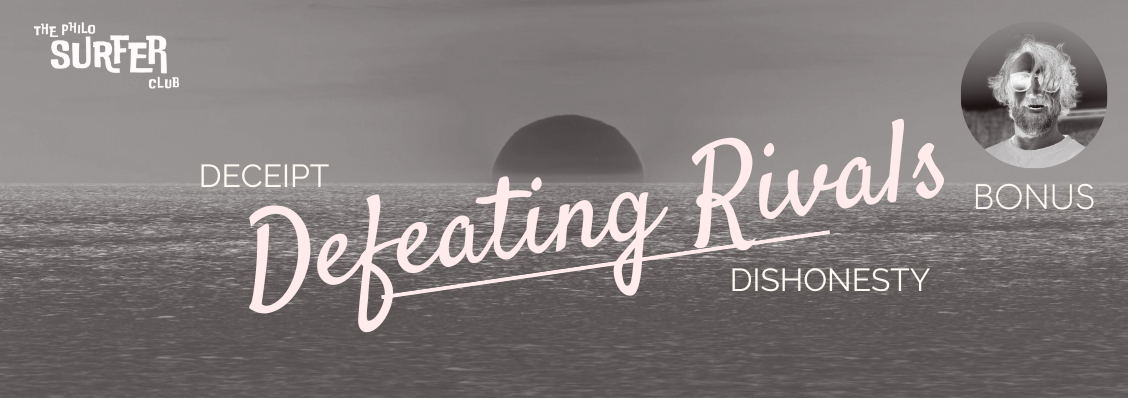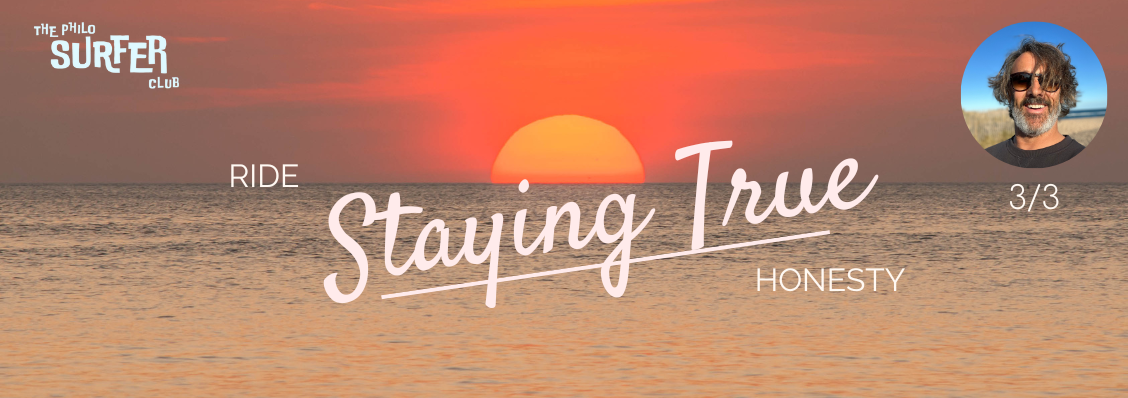Reading time: 3 minutes
Aloha PhiloSurfer!
We’re back for week 2 of our 3-week odyssey navigating the swirling currents of
Truth & Lies
Last week we caught Kant’s intense ethical surf – truth-telling as an absolute duty.
Never ever lie!
No exceptions to the rule!
(If you didn’t read it, you can find it here)
Pretty hardcore, even for hardcore chargers.
‘Cos, for instance…
Could you imagine a Kantian boss always telling the truth to employees?
We all can agree that this would be far from being a good leader.
Enough for this extremely demanding ethical imperative.
This week we’re hanging ten with
John Stuart Mill
the stoked Victorian utilitarian bro.
For Mill it’s all about spreading good vibes and maximizing happiness, which sometimes means bending the truth if it keeps people smiling.
But, let’s take a look at his upbringing before we delve into his ideas…
Born in London way back in 1806, Mill slid into philosophy after his pops gave him a crazy scholarly home-schooling.
We’re talking:
– Greek at age 3.
– Plato by 7.
– Latin at 8.
– Newton’s physics at 11.
Daddy Mill must have used all LinkedIn’s carousels on
How to be 1000% more productive by yesterday
on his son’s education.
Sadly enough, John Stuart had a devastating nervous breakdown at 20.
This made him reflect on the idea of happiness, freedom & purpose.
And surely that made him be more flexible & pragmatic than his German predecessor.
* * * * *
So, Mill took that brain buff and charged into reforming society based on the ethical theory of utilitarianism cooked up together with his (dad’s) bud Jeremy Bentham.
The basic line from Bentham and Mill is striving for
“The greatest happiness for the greatest number.”
Which we can also agree is not the best option in surfing terms.
Mill argued that is not so much the intentions behind the action that matters, but the outcome.
In his own words:
“The morality of actions depends on the consequences which they tend to produce.”
(Kant would be shouting at this moment: “Nein, nein, nein. It’s the intention all that counts!!”).
Utilitarian calculus formula:
Judge every action by how much it adds to or detracts from the net happiness in the world.
- Does it harm more than it benefits? Bad.
- More benefits than harms? Good.
Morality is all about spreading those good vibes, bro!
Note: My main criticism to this theory is the interpersonal utility calculus. In other words, actions that harm yourself but net benefit others are hard to be considered good by me (not to mention to realize them). But that’s another story.
So for Mill, unexpected good results from mean-spirited actions can add to the total happiness.
Under Mill’s utilitarian ethical system, therefore:
Sometimes a little fib can be ethical if it makes people happier and doesn’t harsh their mellow.
🤙🏻
Keep the peaceful lineup vibes flowing!
But Mill ain’t no total poser.
He knows truth has power and lying can lead to uncool chaos.
We gotta aim for what’s ultimately best for society in the long run.
Big lies that erode trust are not rad.
So what’s the takeaway for us surf seekers?
As always, we gotta read the ever-changing swell in front of us.
- When is it best to speak truth to power?
- When will bending it keep the aloha spirit alive?
No easy answers today (again, sorry!).
But Mill gives us a stoked perspective to wax up our thinking!
One week left in our three-part truth odyssey…
Cowabunga and utilitarian blessings!
Mahalo,
PS. Today’s my birthday.
Additional recommendations:
- “How to Be Perfect” by Michael Schur: This thought-provoking book by the creator of “The Good Place” explores what it means to be a good person. It delves into moral philosophy and the concept of perfection, offering insights and discussions that connect with Mill’s ideas.
- “Utilitarianism” by John Stuart Mill: In this classic, he outlines the philosophy, emphasizing the principle of promoting the greatest happiness for the greatest number.
- “On Liberty” by John Stuart Mill: This book complements Mill’s utilitarianism by focusing on the importance of individual liberties and freedoms, exploring how they relate to the greater good and societal well-being.
- “Barbarian Days: A Surfing Life” by William Finnegan: This book provides a surf-related perspective on personal ethics and decision-making. It’s a memoir that reflects on life’s challenges and rewards, much like the philosophical explorations of Mill. Maybe it’s the eleventh time that I recommend it here.













